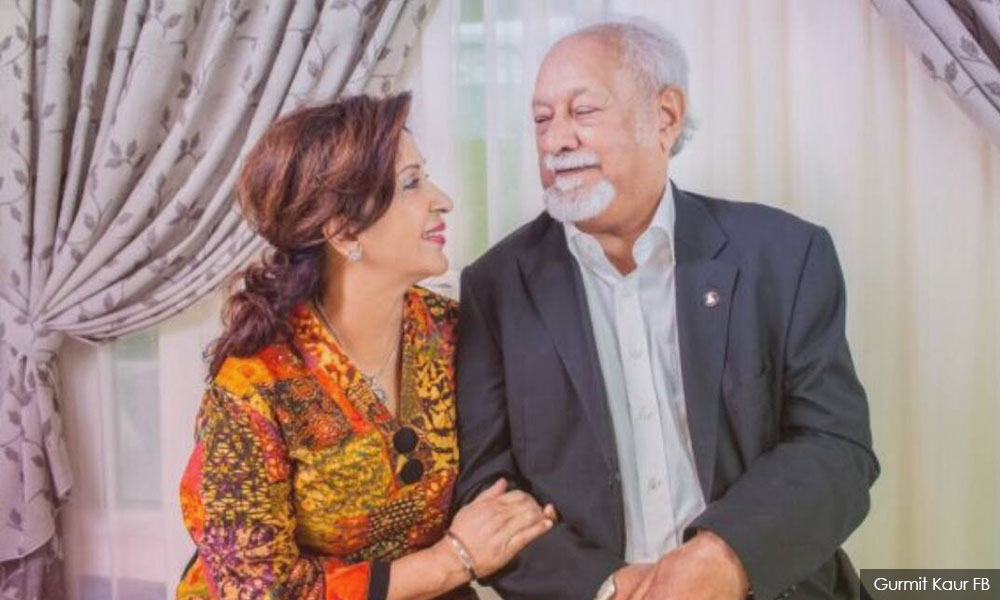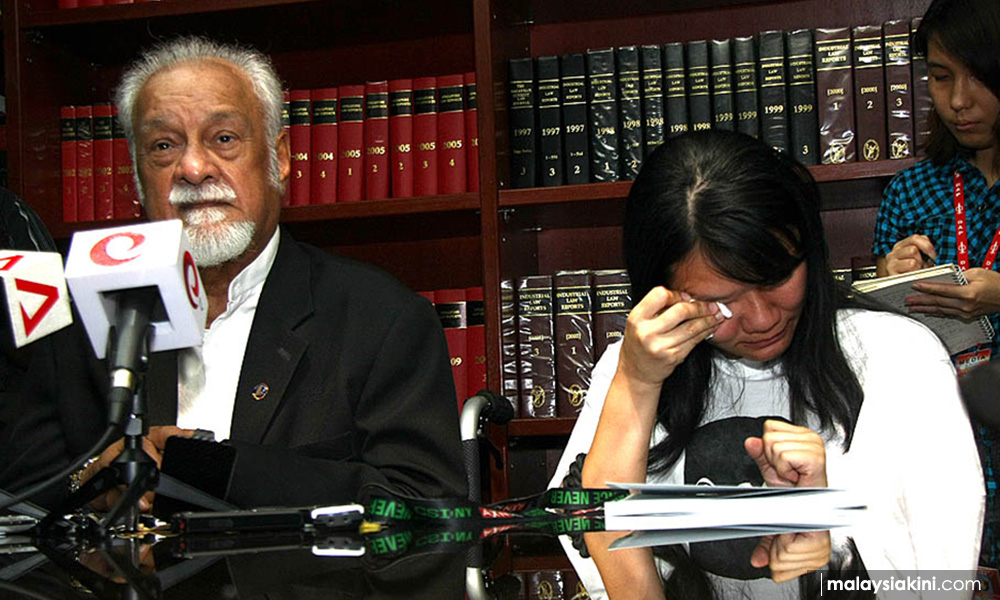HISTORY: TOLD AS IT IS | Karpal Singh Deo, an outstanding lawyer and a fiery politician, is widely admired as a patriotic Malaysian, an outspoken member of Parliament, a staunch human rights activist, and a strong defender of the Federal Constitution.
He has contributed immensely in strengthening Malaysia’s democratic institutions, upholding the rule of law, and defending the interests of the weak and downtrodden.
Karpal was born on June 28, 1940 in George Town, Penang. He attended St Xavier’s primary and secondary schools and thereafter completed his Bachelor of Laws at the University of Singapore in 1968. Karpal was called to the Bar at the High Court of Malaya in Penang on Jan 15, 1969.
He started work in a legal firm in Alor Setar, Kedah and subsequently established his own legal firm, Karpal Singh & Co in 1970. Within a short span of time, Karpal established himself as a leading litigator specialising in criminal law and constitutional law.
Karpal entered politics in 1970 when he joined the DAP. In 1974, he was elected to the Kedah State Legislative Assembly after winning the Alor Setar Bandar state seat. Four years later, Karpal was elected to Parliament as the representative for Jelutong, Penang, and held the seat for 21 years until losing it in 1999. Nonetheless, he returned to Parliament in the next 2004 general election by winning the Bukit Gelugor seat and helped spearhead the DAP to its best-ever performance in the 2008 general election.
Despite being paralysed from the waist down due to a car accident in January 2005, Karpal persevered with incredible courage and gusto in his legal and political endeavours to fight for justice and the rule of law and speak up fearlessly for disadvantaged Malaysians. He died on April 17, 2014, in an automobile accident on the North-South Highway near Gua Tempurung in Perak. As a testimony of his popularity, tens of thousands of mourners attended his funeral held three days later.
Both in the courtroom and Parliament, Karpal Singh fought like a lion to defend the issues close to his heart. Hence, it’s not surprising that he was suspended from Parliament several times, charged with sedition, and detained for 457 days in 1987-89 under the Internal Security Act (ISA).
He was convicted and fined RM4,000 on March 11, 2014, for what was regarded as seditious remarks made during the Perak constitutional crisis in February 2009 for questioning the Perak sultan on his decision to remove then Perak menteri besar Mohammad Nizar Jamaluddin from his post in February 2009. He was however vindicated and posthumously acquitted by the Federal Court in March 2019.

Karpal’s reputation as a bold lawyer and a fiery politician who championed human rights and justice earned him the moniker “The Tiger of Jelutong”.
Karpal was a staunch defender of the Federal Constitution against those who attempted to change its basic structure and fundamental provisions. In a parliamentary debate on April 10, 2014, he famously reiterated the supremacy of the Federal Constitution: “Jangan main-main dengan Perlembagaan. Ikut apa yang ada dalam Perlembagaan, undang-undang yang utama dalam negara ini.” (Do not mess with the Constitution. Follow what is in the Constitution, the supreme law in this country).
In this regard, for example, Karpal resisted attempts to change the original secular structure of the Federal Constitution. He vehemently opposed the implementation of hudud and the notion that Malaysia was an Islamic state. Karpal also fought for the independence of the judiciary, civil liberties, and freedom of religion.
Landmark cases
As a lawyer and in the courts, Karpal was equally pre-eminent. He redefined several areas of law, particularly in the fields of constitutional law and dangerous drugs. Over 600 of his cases have been reported in the law reports. Karpal’s landmark cases, as stated by Ambiga Sreenevasan, a prominent Malaysian lawyer and social activist, include:
(a) Johnson Tan Han Seng v Public Prosecutor (1977) wherein Karpal raised Article 8(1) of the Federal Constitution to challenge the attorney-general’s power to discriminate in the way he preferred charges and prosecuted accused persons under different provisions of the law;
(b) Teh Cheng Poh v Public Prosecutor (1979), one of several cases Karpal argued before the Privy Council, which clarified the reversion of powers to Parliament post-Emergency, and the availability of judicial review in the form of mandamus against cabinet decisions;
(c) Public Prosecutor v Lau Kee Hoo (1983), wherein Karpal argued that the imposition of the death penalty was unconstitutional. The challenge failed but the case remains a leading authority on the constitutional approach to the death penalty;
(d) Arulpragasan a/l Sandaraju v Public Prosecutor (1997), wherein a full bench of the Supreme Court decided that the prosecution in criminal cases was obliged to prove the guilt of an accused person beyond a shadow of a doubt at the close of the prosecution’s case, before the defence was to be called;

(e) Public Prosecutor v Kok Wah Kuan (2008), wherein Karpal argued that the power vested in the Yang di-Pertuan Agong by the Child Act 2001 to detain at his pleasure a child convicted of an offence carrying the death penalty, violated the doctrine of separation of powers.
He argued that as the power to determine guilt and the measure of punishment was a judicial power, the vesting of a sentencing power in the head of state constituted a violation of the doctrine of separation of powers.
The Federal Court rejected that argument and held by a 4-1 majority that, as there was no specific provision in the Federal Constitution incorporating the doctrine of separation of powers, it was not unconstitutional for Parliament to vest sentencing power in the executive.
It is interesting to note that Karpal’s argument was vindicated by the decision of the Privy Council in State of Mauritius v Khoyratty (2006), where Lord Mance observed that new constitutions based on the Westminster model would not usually contain any express provision incorporating the doctrine of separation of powers, but that the doctrine was nevertheless an integral part of such a constitution; and
(f) Ng Chuan Hock v Tan Sri Musa bin Dato’ Hj Hassan (Inspector-General of Police and Chairman of the Disciplinary Authority, Royal Malaysian Police) & Ors (2013), wherein Karpal appeared and argued for a member of the public service, arguing that he had not received procedural fairness in the hands of the disciplinary authority.
Summing up, Karpal Singh was a giant in Malaysian politics who spoke without fear or favour and was an indefatigable fighter of justice. In the words of Ambiga, Karpal “was a man of great principle and great courage, fighting to the bitter end against oppression,” and that he “gave hope to people to always stand up for what is right, no matter what the consequences.” She added that “Parliament will never be the same without Karpal.”
In a similar vein, Lim Kit Siang, one of Malaysia’s leading politicians and Karpal’s colleague in the DAP, has remarked that Karpal is “a legend in law and politics” and in court, “he strides the stage like no other.” - Mkini
RANJIT SINGH MALHI is an independent historian who has written 19 books on Malaysian, Asian and world history. He is highly committed to writing an inclusive and truthful history of Malaysia based upon authoritative sources.
The views expressed here are those of the author/contributor and do not necessarily represent the views of MMKtT.




No comments:
Post a Comment
Note: Only a member of this blog may post a comment.